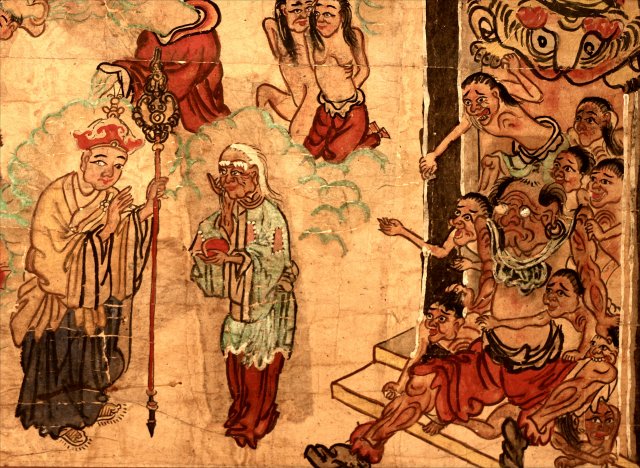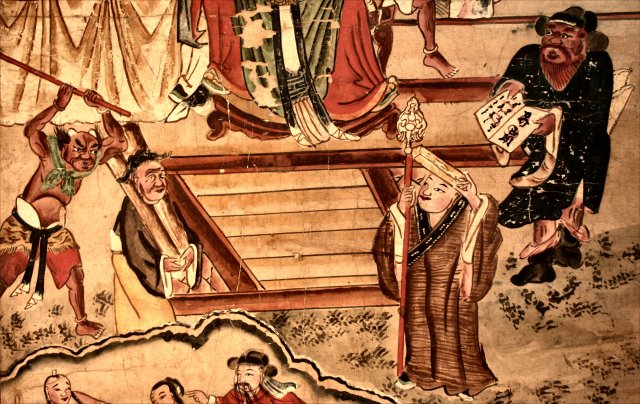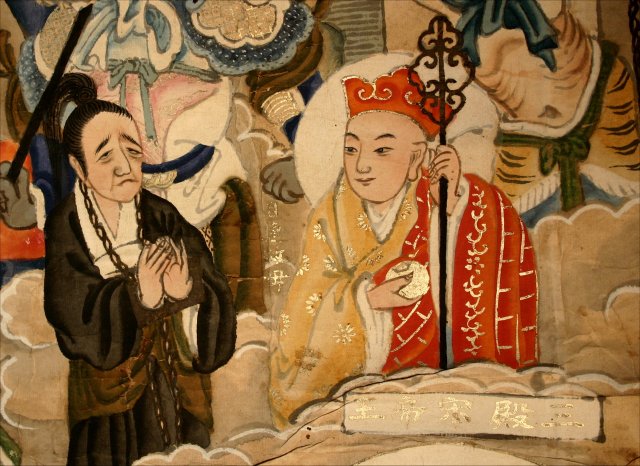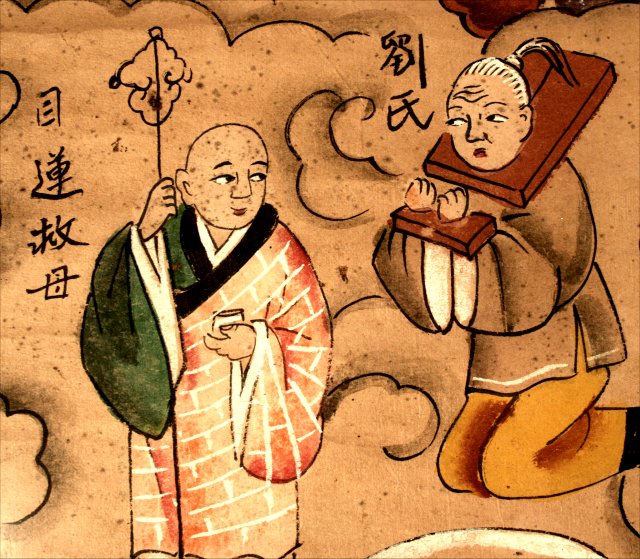
Translation (from right to left)
- Mdm. Liu (a.k.a. Lady Niladhi)
- Mulian saves his mother
In coexistence with the hell scrolls, "Mulian saves his mother" was a widely performed multi-night opera, and as Qitao Guo translates one late Ming description of preparing for such pageantry:
There were heavenly gods and earthly deities, Oxhead and Horseface, the Ghost Mother of Death Gate, yaksha and rakshas, saws, grindstones, and three-legged cauldrons, the Knife Mountain and Icy Pond, the Sword Tree in Yama's palace, and the Iron Wall and the Blood Lake, all just as they are in the transformation picture of Wu Daozi, [said to be the first great hell mural painter from the Tang]. Tens of thousands were spent to construct them in paper. The audience was very uneasy; under the light of the lamps, their faces had a demonic quality. In suites like "Summoning the Evil Ghosts of the Five Directions" and "Madame Liu [a.k.a. Mulian's mother] Flees the Stage," more than ten thousand people shouted at once.
Hence these hell scrolls should be viewed in this larger context of hell's spectacle being communicated through multiple simultaneous media. People desired and delighted to see these horrors, and merchant lineages would finance their performances. As Qitao Guo concludes:
"Mulian" differed from many other plays, however, in that it was staged in a ritual matrix, often both to amuse the gods and to exorcise the ghosts. During the performance, deities and demons swarmed over the stage, at times erupting into the audience and rushing out into the surrounding fields or streets. A "Mulian" spectator from the Huizhou region said, "[We] love but also fear to watch; the more frightened we are the more we want to watch." "Mulian," staged with incomporable force, was full of horror, but it also included many comic scenes and was often performed on important occasions or annual festivals. Festivity combined with terror to create an atmosphere that was at once tense and joyful, in which moral values and religious precepts could be absorbed unconsciously.
In the hell-scrolls genre, the location of Mulian and his mother was variable, and in this case their place in the tenth scroll at the moment of rebirth potentially evoked the story of their exit from hell. Near the end of the "Transformation text on Mahamaudgalyayana [a.k.a. "Mulian"] rescuing his mother from the underworld," the filial Mulian saved his mother from the tortures of Avici Hell by breaking open the gates of hell for everyone else in the process. Yet he was still unable to secure a beneficial rebirth for her. Instead she had to endure existence as a hungry ghost, her plight here translated by Victor Mair from a ninth- or tenth-century version of the story:
Having been granted the awesome power of the Buddha, Maudgalyayana was enabled to visit his mother. But the roots of her sin were deep and fast; the karmic forces difficult to eliminate. Thus, although she was freed of the torments of hell, she fell upon the path of hungry ghosts. Here the sorrow and suffering were dissimilar, for misery and joy were completely polarized. When placed next to her previous existence, the difference was intensified hundreds, thousands, even ten thousands of times. Her throat was like the eye of a needle, through which a drop of water could not pass. Her head seemed to be Mount T'ai, which the three rivers could hardly fill. She never even heard the words 'broth' or 'water.' Months would accumulate and years would pass while she endured the miseries of hunger and emaciation. She might see in the distance some clear, cool water but, when she came near, it would turn into a river of pus. Even though she obtained delicious food and tasty meals, they would immediately be transformed into fierce flames.
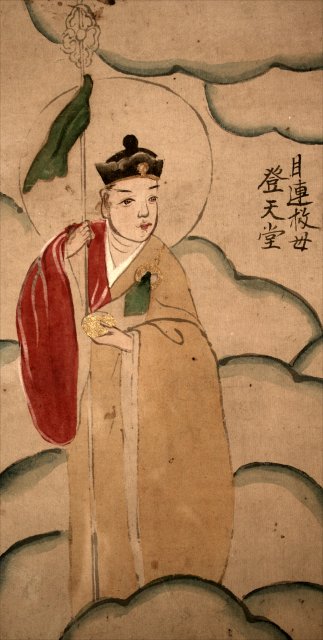
A second example of Mulian from another hell scroll (S15).
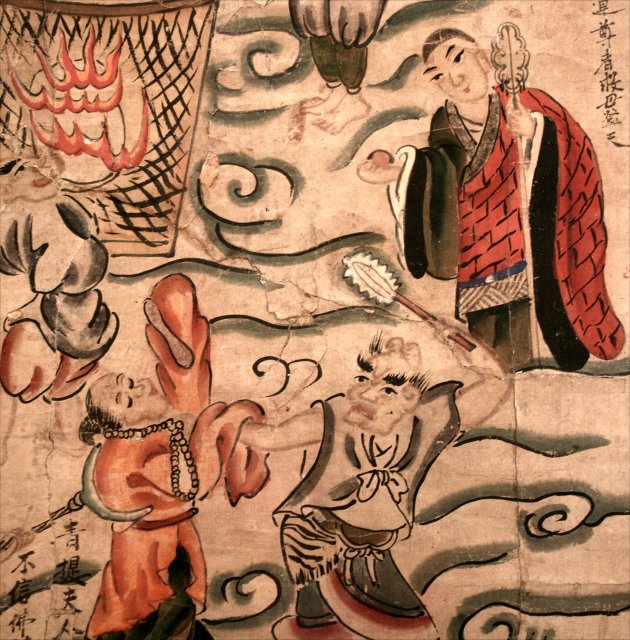
A third example of Mulian, this time with his mother (lower left), from another hell scroll (G2).
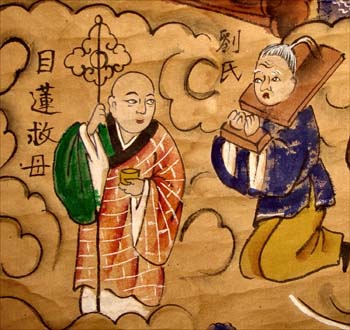
A fourth example of Mulian and his mother, from another hell scroll (S7).
